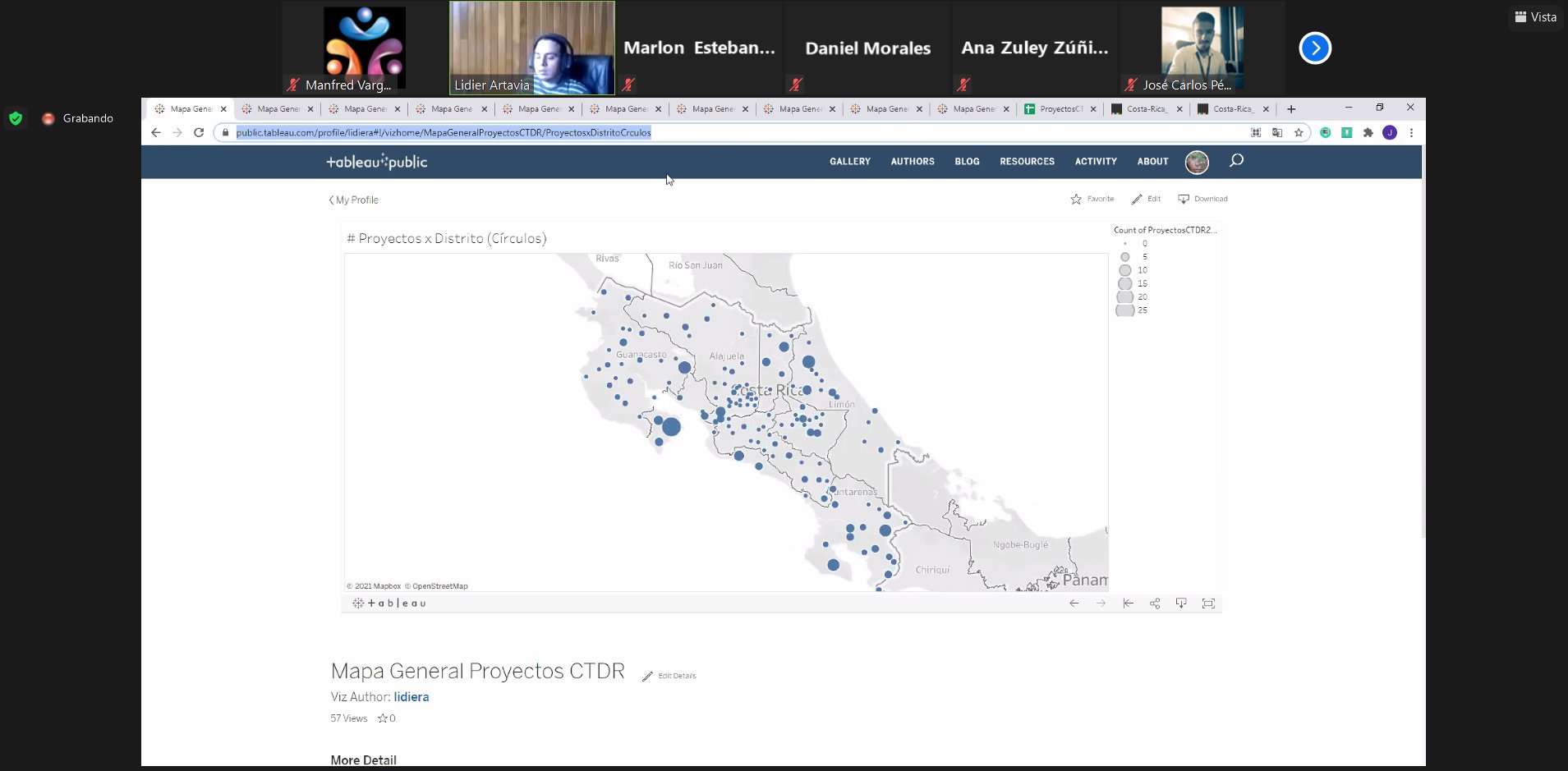Data Expedition - Costa Rica - Relatório do Evento
- Dia
- Saturday 6 March 2021
- Horário
- 15:00 (CST)
- Local
- Online, Costa Rica (The Americas)
- Organizadores
- ACCESA
No sábado, 6 de Março de 2021, o décimo primeiro Dia dos Dados Abertos foi realizado por pessoas de todo o mundo através da organização de centenas de eventos para celebrar, promover e disseminar o uso de dados abertos. Graças aos generosos suportes, a Open Knowledge Foundation foi capaz de apoiar a realização de mais de 60 destes eventos através nosso esquema de minibolsas.
Este evento recebeu uma minibolsa da Open Knowledge Foundation graças ao suporte de the Latin American Open Data Initiative.

Como seu evento celebrou os Dados Abertos?
Our event this year had a peculiarity, which was that the data we wanted to use wasn’t actually open. To give a little background: we are the civil society counterparts of the Social Inclusion commitment included in Costa Rica’s Open State Action Plan, which aims to support the Territorial Councils of Rural Development, the main participatory bodies for fostering rural development in the country, so that they can be more transparent, open and inclusive. But on the course of this work we found a very important stumbling block: the data about the projects these Councils are implementing was not accessible anywhere.
Leveraging the fact that Open Data Day was approaching, we asked the Institute for Rural Development (Inder) - the public institution that assists and partly finances the Councils - if they had this data because we were interested in holding an event to disseminate the important work being done by the Councils. They were kind to share the data with us, but the file they gave us was not exactly ready for public consumption, so we had to do quite a bit of work to clean the data and present it in a way that was more clear and attractive to people.
For our event, we designed a Data Expedition where the participants were able to access and explore for the first time ever the data of the projects being implemented by the Councils, their location, the money spent on them, their percentage of completion, the organisations involved and many other key info that was previously undisclosed. It should be mentioned that none of this data was confidential, it just hadn’t been made available. But the great thing about Open Data Day is that it gave us the impetus to change that situation and demonstrate how data can be used to improve and monitor rural development.
Hoy en el marco del #OpenDataDay2021 realizamos una expedición con datos inéditos sobre los proyectos de desarrollo rural ejecutados en Costa Rica. Muchas gracias a quienes nos acompañaron. Pronto les compartiremos las visualizaciones y reportes que preparamos para la actividad! pic.twitter.com/BVMhUlLUou
— ACCESA (@accesaorg) March 7, 2021
Lições aprendidas no evento:
Our Open Data Day celebration, which usually takes place in a physical space, had to forcibly be relocated to a virtual environment this year because of the pandemic. This brought with it a series of challenges regarding how to translate the experience of a Data Expedition to an online setting in which we cannot interact face-to-face with the participants.
One of the main challenges had to do with time: people do not have the same endurance sitting in front of their computer on a videoconference than they do in an in-person activity. So we had to reduce the scope of the event, which meant that time was too short to fully explore and follow through on any hypothesis or relationships that may be identified, but it at least planted the seeds for further data exploration.
We also found out that many of the people in the event were there as observers: very interested to learn about the data being made available, but not with the conditions or inclinations to actively participate. Therefore, we successfully repurposed the event to this situation, focusing more on presenting the reports and visualisations that we prepared, explaining the possibilities for further use of the data, and answering any questions or comments that participants wanted to share with us.
Porque você ama o Dia dos Dados Abertos?
We love Open Data Day because, as an organisation that aims to transform the relationship between governments and citizens, it is an excellent opportunity to prompt public institutions to open their data and share it with the people, so that through the different activities that are planned throughout the day both governments and citizens can understand the potential of open data and collaborate to reach better solutions to our common problems.
Você ou seu time produziu algum recurso (conjunto de dados/ferramenta/mapa/código/etc) durante sua celebração do Dia dos Dados Abertos?
One of the most important outcomes of this event was the opening and publication of data that was previously closed and unpublished. Not only that, but the work we did in cleaning the data and visualising it using maps will go a long way in allowing the Councils and anyone else to harness its potential for rural development.
For now the data is only available in our Tableau Public account, but in the coming months we’ll work with Inder and the Councils to ensure that this data can be more widely-disseminated and used in ways that can foster the transparency, inclusiveness and decision-making process of the Councils.
